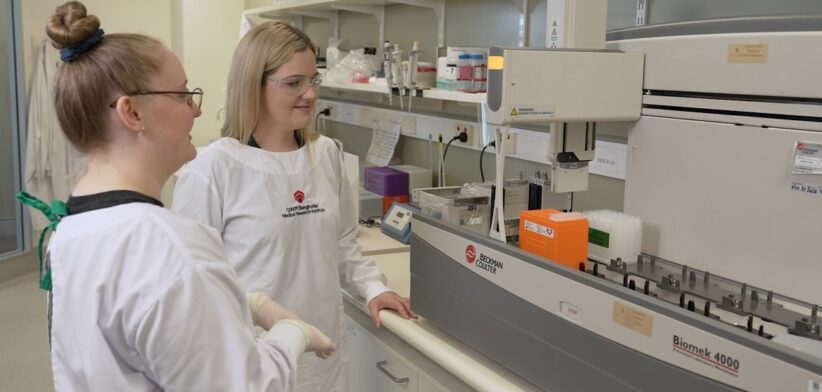Scientists have enhanced the ability to predict a person’s risk of depression through the discovery of almost 300 more genes linked to the condition.
The global study, which involved researchers from Brisbane medical research institute QIMR Berghofer, analysed data from 29 countries, which included genetic samples from 680,000 people with depression and four million people who had not experienced depression.
QIMR Berghofer researcher Dr Brittany Mitchell said the discovery of the new genes could also pave the way for new, more effective drug treatments, including repurposing existing medications.
Dr Mitchell said one in four participants in the seven-year long study were from a non-European background.
She said the team found a total of 697 genetic variants linked to depression, an almost 300 increase on what was previously known.
“Each genetic variant has a very small effect on the overall risk of someone developing depression.
“If a person has multiple variants, these small effects can add up, increasing their risk.”
Dr Mitchell said current limited understanding of depression made it hard to improve outcomes for those affected.
“While depression is a growing major health issue, we lack the insights needed to better treat and prevent it,” she said.
“Larger, more inclusive studies like this will help us develop better treatments and interventions, ultimately improving lives and reducing the global impact of the condition.
“It will also reinforce the evidence that mental health conditions are as biologically based as other conditions like heart disease.”
Dr Mitchell said Australia’s contribution to the international study was vital.
She said more than 50 of the newly identified gene variants came via results from the Australian Genetics of Depression Study (AGDS) which provided a database of 16,000 participants with depression and 18,000 without depression providing saliva samples for analysis.
Read the full study: Trans-ancestry genome-wide study of depression identifies 697 associations implicating cell types and pharmacotherapies.








